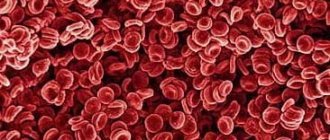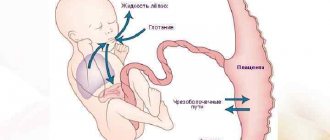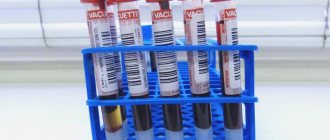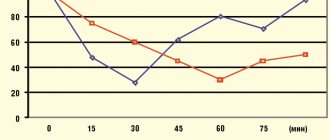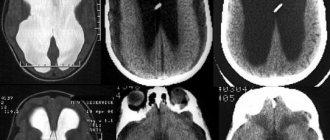The small intestine is the part of the gastrointestinal tract that runs from the stomach to the large intestine. Its initial section is the duodenum, which is often considered as an independent unit. The small intestine consists of three membranes :
- External - connecting;
- Medium - muscular;
- Internal - mucous membrane.
The surface of the mucosa is covered with villi, and there are also excretory ducts of the digestive glands. The small intestine, like any other organ, can be susceptible to the development of cancer pathologies.
How to recognize bowel cancer? 7 risk factors Read more
““Tumors of the small intestine” is a collective term that includes formations that have different histological characteristics (characteristics obtained by examining tissue under a microscope). Moreover, the frequency of such diseases in the structure of all tumors of the gastrointestinal tract is about 5%. Almost half of them are malignant,” says Artur Kulikov, a coloproctologist at a multidisciplinary oncology center.
Types of tumors
The most frequently developing malignant neoplasms, as a coloproctologist says, include:
- adenocarcinoma (45%);
- neuroendocrine tumors (NET) (30%);
- lymphoma (10%);
- gastrointestinal stromal tumors (GIST/GIST);
- sarcomas.
Article on the topic
Fatal heartburn: where esophageal carcinoma and cancer begin Adenocarcinomas are more often observed in individuals with a hereditary predisposition to the development of adenomatous polyposis, with Peutz-Jeghers syndrome or Crohn's disease. The risk of developing adenocarcinoma increases in people over 60 years of age. Adenocarcinoma of the small intestine can metastasize both to regional lymph nodes and to distant organs, most often to the liver, says surgeon Kulikov.
“Carcinoid tumors mainly develop in the ileum and cecum, as well as in the appendix and duodenum. Visually, they are small nodular formations located in the intestinal wall. These tumors are hormonally active,” explains the specialist.
Lymphoma of the small intestine most often occurs in the distal sections - in the ileum and jejunum - due to the presence of a large amount of lymphoid tissue, says the specialist. Risk factors are systemic inflammatory diseases :
- Crohn's disease;
- systemic lupus erythematosus;
- history of lymphoma of another location.
Bacteria of death. Do antibiotics contribute to colon cancer? More details
“GISTs are most often located in the stomach, jejunum and ileum. About 20-30% of gastrointestinal tumors become malignant. This occurs more often in the small intestine than in the stomach. Tumors smaller than 2 cm are usually benign, while tumors larger than 5 cm are often malignant,” notes Artur Kulikov.
Diagnosis of intestinal and gallbladder diseases
If any unpleasant systematics appear, you should contact a gastroenterologist. The doctor will listen to complaints, study the medical history, and perform palpation and percussion.
To establish an accurate diagnosis, you will have to undergo a diagnostic examination (the doctor selects the methods individually):
- blood and stool tests;
- abdominal ultrasound examination;
- endoscopy - examines the intestines using an optical tube that is inserted through the esophagus;
- colonoscopy - an optical tube is inserted through the anus;
- fiberoscopy - examination of the intestine using a flexible device, allows you to examine sections that are inaccessible to other diagnostic methods;
- rectoscopy - endoscopic examination of the rectum;
- irrigoscopy - x-ray of the intestines using a contrast agent;
- computer or magnetic resonance imaging.
For diseases of the biliary system, diagnostic examination includes:
- General and biochemical analysis of blood and urine;
- coprogram;
- duodenal intubation - a probe is inserted through the oral cavity into the duodenum to collect bile;
- chemical analysis of bile;
- bile culture;
- Ultrasound of the abdominal organs;
- cholangiography and cholecystography - x-ray of the gallbladder using a contrast agent;
- cholangiopancreatography - examination of the gallbladder using the simultaneous use of an endoscope and x-ray;
- cholescintigraphy – evaluates the movement of bile;
- biopsy (if a malignant process is suspected);
- computed tomography.
How to recognize
In the early stages, tumors in the small intestine, like most cancers, are asymptomatic, emphasizes surgeon Kulikov. Most often, patients complain to a doctor when the tumor has already grown deeply into the intestinal tissue and metastasizes to neighboring organs.
Article on the topic
A bad sign of a well-fed life.
What is colorectal cancer and who is at risk from it? The earliest symptoms , as the specialist notes, are:
- nausea or vomiting;
- bloating;
- spasmodic pain in the intestinal area.
“Then the patient begins to lose weight and intestinal bleeding appears. If the tumor grows strongly, it can block the intestinal lumen, and then obstruction occurs, accompanied by bloating, vomiting, and dehydration. Also, the tumor can compress neighboring organs and tissues, this can cause the development of jaundice, pancreatitis, intestinal ischemia, etc. In some situations, the tumor can rupture the intestinal wall, and then the patient will need urgent surgery, otherwise he may die,” says Artur Kulikov .
Diverticular disease of the small intestine
Diverticular disease of the small intestine is caused by pathological changes in one or more diverticula.
The cause of the disease: impaired emptying of diverticula, development of bacterial colonization syndrome of the small intestine.
Diverticula form in various parts of the small intestine, and therefore the clinical symptoms of inflammation are determined by their location.
For inflammation of diverticula:
a) duodenum, pain appears in the right hypochondrium, accompanied by bad breath. b) duodenum near the papilla of Vater, through which bile and pancreatic enzymes enter the intestine, the development of obstructive jaundice and a picture of acute pancreatitis is possible; c) Meckel's diverticulum in the ileum may cause bleeding, in children - intestinal volvulus, obstruction, in the elderly - symptoms of appendicitis may appear. Multiple diverticula of the jejunum are most often asymptomatic. When they become inflamed, excessive growth of microbes develops, absorption is impaired, swelling occurs, and water-electrolyte metabolism is disrupted.
Clinical symptoms that make one suspect the disease include :
- cramping abdominal pain
- smell from the mouth
- flatulence
- diarrhea
- constipation
- intestinal bleeding
- swelling of the lower extremities
If you have these symptoms, you should consult a doctor. The specialist will assess the condition and prescribe an examination.
The main method of examination is x-ray examination of the small intestine. This study will determine the violation of emptying of diverticula, the degree of their filling with contrast, thereby confirming or excluding the diagnosis.
The danger of the disease lies in the possibility of progression of the inflammatory process, the development of bleeding, obstruction, abscess and rupture of the diverticulum, complicated by peritonitis.
Treatment consists of following a special diet and using antibacterial drugs. If there are complications, surgical treatment is possible.
At the Moscow Clinical Scientific and Practical Center named after. A.S. Loginova, treatment of diverticular disease of the small intestine is carried out jointly by gastroenterologists and surgeons .
Do not delay your visit to the specialists of our Center. This will help to diagnose this condition in a timely manner and choose the right treatment tactics. Doctors of the department of non-inflammatory intestinal pathology of the State Budgetary Healthcare Institution MKSC named after A.S. Loginova DZM are always ready to help you.
What is the problem
Malabsorption, or malabsorption in the intestine, is a malfunction in the functioning of this organ, which is manifested by a number of symptoms resulting from a violation of the digestive and transport functions of the small intestine. This definitely affects metabolism. Malabsorption syndrome is often congenital and manifests itself in children in the first 10 years of life. But there are also cases of acquired disease.
Article on the topic The intestines have neurosis. How to properly treat irritation?
Diagnosis directly depends on symptoms. So, for example, if the clinical manifestations of the congenital variant and the moderate and severe form of the acquired variant can actively manifest themselves, then the latent forms of the syndrome do not have clear manifestations and require a different diagnostic approach.
Features of the disease
Irritable bowel syndrome can occur as an independent disease or a concomitant manifestation of other pathologies of the gastrointestinal tract. The main characteristic is a dysfunction of irritable bowel, accompanied by dyseptic symptoms, gastrointestinal disorders, eating disorders and other unpleasant manifestations.
Based on the totality of symptoms, three types of irritable bowel syndrome are distinguished:
- accompanied by diarrhea. Expressed in a frequent urge to defecate, especially after eating, pain, frequent loose stools;
- irritable bowel syndrome with constipation. It manifests itself as a long-term absence of stool (a week or more), pain, and in some cases, admixtures of mucus and blood in the stool;
- accompanied by flatulence. It manifests itself as bloating, a feeling of distension in the abdomen. Side symptoms include shortness of breath and rapid heartbeat. They arise due to expansion of the dome of the diaphragm and, accordingly, internal pressure.
Irritable bowel syndrome cannot exist in isolation. It leads to the development of duodenal reflux (bile entering the stomach) and gastroesophageal reflux disease (fluids entering the esophagus). This promotes inflammation of the mucous membranes of the gastrointestinal tract, resulting in the development of gastritis, cholecystitis, enterocolitis, pancreatitis and even ulcers. Only timely diagnosis and correctly prescribed therapy can prevent these complications.
Possible causes of the disease
One of the causes of irritable bowel syndrome is infectious gastroenteritis. About 30% of patients who presented with symptoms of this disease suffered an infection. The exact cause-and-effect relationships between certain factors and signs of irritable bowel disease have not been established. Modern experts believe that the development of pathological processes is facilitated by decreased sleep quality, poor nutrition, chronic stress and other unfavorable factors, which, for the most part, depend on the patient himself. That is why, in most cases, treatment involves the development of a dietary menu and lifestyle correction.
Some of the causes of irritable bowel syndrome include:
- stress, neuroses, depressive states;
- eating foods high in fat;
- abuse of caffeinated drinks;
- lack of physical activity, leading to weakening of the abdominal muscles;
- deficiency of lactobacilli in the body;
- changes in intestinal motility. If motility speeds up, this leads to the development of diarrhea. If it slows down, constipation may occur. Changes in motor skills are accompanied by pain due to sudden muscle contraction;
- hormonal imbalance. A connection between exacerbation of irritable bowel syndrome and the phases of the female cycle has been identified. In some cases, the disease may occur during pregnancy or lactation.
Risk factors for irritable bowel syndrome also include:
- age category over 50 years;
- genetic predisposition (family history);
- taking a course of antibiotics;
- anemia, leukocytosis;
- staying in an area with a high level of infectious diseases;
- development of tumor processes.
Symptoms
If the form of the disease is mild, it may not be recognized. However, as the situation worsens, symptoms can become quite pronounced. You should contact your doctor for a more detailed examination if even one of the following symptoms is observed:
- Discomfort in the intestines of varying severity
- Anemia according to blood tests
- Deficiency of vitamins B12, B9, C and others
- Increased dryness of skin and hair, brittle nails and other signs of vitamin deficiency, especially if you are taking special medications
- Deficiency of fat-soluble vitamins A, D, E, K
- Hypocalcemia
- Weakness
- Increased excitability or, conversely, apathy
- Losing weight for no apparent reason
Article on the topicFor gastritis, contagious and inherited. Debunking myths about stomach ulcers
You should also pay attention to pain. In this case, the pain may radiate to the lower back, be cramping in nature, or be girdling (it is often compared to intestinal colic). It starts to hurt after eating, and at the same time you can notice bloating and rumbling. The stool changes, becomes more frequent and has an unpleasant odor. The syndrome also leads to a feeling of nausea and affects appetite.
Therapy in our clinics
In our clinics you will receive an appointment with leading specialists - therapists, gastroenterologists, as well as a comprehensive examination using modern methods. At the first stage, you should consult with a therapist, who will conduct an initial examination and refer you to a specialized specialist.
Doctors from the Medcom network of clinics prescribe treatment after a comprehensive examination of the patient and an accurate diagnosis. An individual diet is developed for each patient, including boiled meat, fish, vegetable and fruit purees, natural kefir and other products that normalize intestinal function. If nervous system dysfunction is identified among the causes of irritable bowel syndrome, the doctor prescribes sedatives. For constipation, laxatives are selected taking into account the severity of symptoms and the individual characteristics of the body. The treatment process for irritable bowel syndrome may also include niacin injections, physical therapy, and other medical treatments.
At all stages of treatment for irritable bowel syndrome, the doctor maintains contact with the patient - this is necessary to monitor the effectiveness and make timely adjustments.



